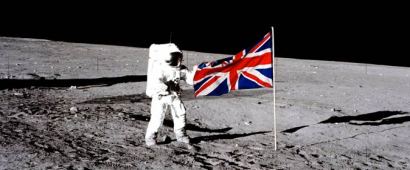In November of this year, Britain will have its first ever astronaut land on the International Space Station, Timothy Peake, who’ll take part in a sixth month mission called Expedition 46. Peake is the first British astronaut to be selected by the European Space Agency (ESA). However, this begs the question, why doesn’t Britain have its own space exploration programme?
First, we’ve got to ask, why do we even explore space in the first place? Human’s have always had a strong desire to explore, which can be evidenced by how much of the earth we’ve navigated and mapped. Exploring space allows us to evaluate our history and our place in the cosmos, as well as giving us the opportunity to finally answer the age old question: are we alone? Exploring space could guarantee that mankind lives forever, we could find other habitable planets or existential life forces outside of our solar system. To quote the film Interstellar: ‘Mankind was born on earth. It was never meant to die here.’ We launch objects into orbit, because it’s the first step in allowing us to travel through space. The International Space Station is allowing our planet to evaluate what life in space would feel like to humans; it’s a stepping stone for interstellar travel. We explore space because, simply put, we must.
Secondly, could money spent on funding the expenditure be better spent elsewhere? The National Aeronautics and Space Administration, better known as NASA, requested $17 billion for 2015, according to the President’s Budget Request summary and the ESA had a budget of $4.2 billion in 2013. According to an article on Freakonomics, in 2006, American’s spent more than $154 billion on alcohol alone. The leaps and bounds we’ve taken through scientific, technological and socio-economic have proven that the money has been used as a valuable investment. We are in the space age, where there are over 2000 artificial satellites in space, the first, called Sputnik 1, launched in 1957. These satellites are mostly used by millitary, global positioning navigation, weather observations, broadcasts and telecommunications. Over half of our artificial satellites were launched by the United States.
So, if a space exploration programme would be beneficial to the planet and somewhat affordable, why doesn’t the UK have one? According to Josh Barker from the National Space Centre, there are four headings we could file the reasons under: ‘cost, expertise, strengths and the ease of collaboration.’ Whilst the UK prides itself on satellite construction, we have no manned space programme. Space travel would actually not be affordable to the UK, unless we dedicated our science forces to it and made a big investment. This isn’t necessary, when there are other countries that have already done so and the UK could simply collaborate with them, instead of attempting it alone. Wired.com, in 2009, stated that ‘Space industries in the UK have a £6.5 billion annual turnover, employ 68,000 people and, even in these times of recession, are expected to grow at a rate of 5 per cent each year until 2020, according to the Department for Business, Innovation and Skills’. However, whilst the UK’s space industries have been referred to as second only to the USA, the UK has been incorporated into the European Space Agency, instead of being a lone wolf.
1966 saw the UK stop making the effort to make a spacecraft, blaming the cost of doing so. Doug Millard, senior curator of the Science Museum’s space department, claims that this ‘signalled the UK’s exit from any further substantive development of space launch vehicles’. The UK has abandoned making spacecraft, instead focusing their efforts into artificial satellites. Our strengths lie in satellites, it’s what the UK is good at and we are aiding the planet in making technological advances. However, when incorporated into the ESA, the UK has produced our famed astronaut, Timothy Peake.
Britain doesn’t have a space exploration programme because the world doesn’t need our money and technology focused on that specific area. The UK is part of the ESA and our satellite technology being in its prime, our efforts are better focused elsewhere. We may continue to send astronauts into space, but a space exploration programme is not, and may never be, one of Britain’s priorities.

